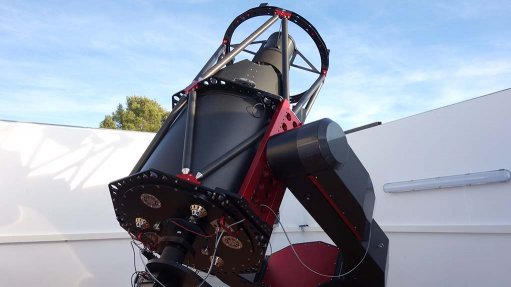
One of Spaceflux’s space domain awareness telescope sensors
Photo by: Spaceflux
UK space domain awareness (SDA) services company Spaceflux (founded in 2022) has won two important contracts from Britain’s military and civilian space organisations, UK Space Command and the UK Space Agency (UKSA), respectively. The company describes the contracts as “lucrative”. SDA involves the tracking of satellites and space debris.
“[SDA] is vital for the safety and security of in-orbit assets and is becoming increasingly foundational in space operations,” highlighted Spaceflux founder and CEO Dr Marco Rocchetto. “Spaceflux has developed solutions, which guarantee timeliness, reliability, and accuracy of SDA systems.”
Under one of the contracts, the company will provide SDA to both entities, using its network of ground-based optical telescopes, spread across ten locations on five continents. These include sites in Australia, Chile and Hawaii. The data from these telescopes is processed by the company’s unique artificial intelligence-driven analytics programme. The company can provide SDA from low Earth orbits, through geosynchronous Earth orbit (GEO) up to cislunar (between the Earth and Moon) orbits.
“As our reliance on satellites for everyday activity grows and the UK becomes a hub of small satellite design, manufacturing and launch, we are at the forefront of ensuring a safe and secure space environment,” affirmed UKSA CEO Dr Paul Bate. “But with more than 8 000 operational satellites and more than 30 000 pieces of trackable debris, the ability to operate safely in space is growing increasingly challenging.”
Under the other contract, the company will construct, routinely operate, and maintain an SDA telescope at a sovereign British military base on Cyprus, again for both agencies. This sensor is part of the UK’s Project Nyx Alpha, to monitor objects in GEO (which is about 36 000 km above the equator). It will mainly be focused on providing information that will help prevent British satellites (civil as well as military) colliding with debris or other satellites, whether as the result of accident or malice.
“[SDA] underpins our ability to protect and defend UK and allied interests in space,” pointed out UK Space Command head Air Vice-Marshal (AVM) Paul Godfrey. (AVM is equivalent to Major-General in other air forces.) “The UK has critical assets in geostationary orbit, and Project Nyx Alpha will help us to monitor them more closely. It is great to see that UK Space Command and the [UKSA] are working with some of the most innovative UK space companies to develop our nation’s space capabilities.”
Spaceflux plans to set up another of its ground-based optical telescope-based sensors at 15 more sites, during the course of next year. This will greatly increase coverage and the number of observations made each day, greatly increasing the accuracy and reliability of the data.